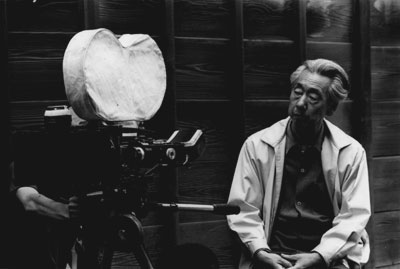
Many a great Japanese director was a miserable bastard. One long-neglected master is Mikio Naruse, whose films are finally starting to get released outside Japan (Repast, Flowing, and Sound of the Mountain from UK distributor Eureka and a recent Criterion release, When a Woman Ascends the Stairs, in the US). Great films, very low-key, somewhere between Ozu and Mizoguchi; you've got the home drama aspects of the former and the long-suffering female protagonists of the latter. But while Ozu offered resignation and Mizoguchi transcendence at the end of their respective films, Naruse offers neither, leaving his female protagonists to twist in the wind. It is only their Japanese fighting spirit that keeps them going, facing out the long days of desolation dangling over the abyss of depression and meaningless existence. Unwatchable? No fear, the films have a subtlety and realism that diffuses any direct slit-your-wrists vibe, but there's no doubt the director was channeling a lot of his own downheartedness into his films. By all accounts, Naruse was the most miserable and depressed director in Japanese film history. Nicknamed "Yaruse Nakio" (which I'm told translates as "Mr. Disconsolate"), at Toho, his one hobby was drinking alone. His only social interaction was with the women who served him his drinks at cheap eateries, one of whom fell in love with him and subsequently committed suicide when he failed to respond to her letters (an event that further clouded his personal reputation). But his films are superb in their way, stark and moving. When you watch them, you realize that here is an auteur with an ouvre who's been standing alongside the greats all this time, his work shamefully overlooked. I urge everyone to see at least one film by this fine filmmaker.


